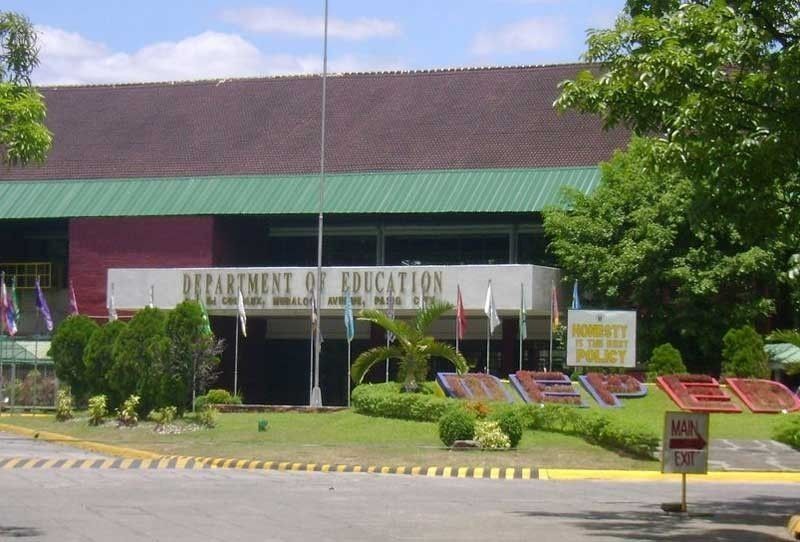DepEd checking data breach after hacking

MANILA, Philippines — The Department of Education (DepEd) is examining its systems for possible data breaches after reports of hackers allegedly harvesting 750 gigabytes of data containing sensitive information on banking details, students, teachers and more.
DeepWeb Konek, a collective of cybersecurity practitioners, reported yesterday morning on X that it monitored a post by a “threat actor” in the dark web that it collected the data from a certain office of DepEd.
In the post shared by the group, the alleged threat actor said it would not be leaking any of the data to the public “yet” but might offer curated data in the future.
In a statement, DepEd said it was verifying whether any of its systems were hacked.
“We have instructed the field offices to run diagnostics and verify if there was indeed a hack. No report as of the moment as verification is ongoing,” DepEd said.
“We will provide information as soon as we get them from our Regional and Division Information Officers,” it added, stressing it was coordinating with the Department of Information and Communications Technology (DICT).
Renato Paraiso, DICT spokesman and assistant secretary for legal affairs, said the agency has isolated their investigation to a regional office of the DepEd.
The Cybercrime Investigation and Coordinating Center is also looking into the reported DepEd breach.
In the past few days, the government suffered bomb threats delivered to the email of government offices.
The Department of Justice and other law enforcers have since launched operations to track the perpetrators.
Cyberstalker
Aside from the problem of “love” scam and other online scams, netizens around the world who engage in online dating are also grappling with the danger of cyberstalkers, a global survey found.
The online survey, conducted by United Kingdom-based international market research firm Arlington Research and commissioned by multinational cybersecurity firm Kaspersky, found that nearly a quarter of 21,000 respondents in 21 countries, or 23 percent, had experienced some form of online stalking from a person they were newly dating.
It was noted that the types of abuse are varied with well over a third or 39 percent of respondents having reported some form of violence or abuse from a current or previous partner: 16 percent of respondents had been sent unwanted emails or messages and 13 percent had been filmed or photographed without their consent.
A further 10 percent admitted they had had their location tracked, 10 percent had suffered the hacking of their social media accounts or emails and 7 percent had had “stalkerware” (stalker software) installed on their devices without their consent.
The survey also found that over 90 percent of respondents were willing to share passwords that could potentially allow their location to be accessed.
A third or 34 percent of respondents believe that Googling/checking social media accounts of a person you had started dating as a form of due diligence is acceptable and 41 percent admitted to doing so when they started dating someone.
Arlington Research conducted 21,000 online interviews from Jan. 3 to 17 – 1,000 in each of the 21 countries covered, namely the UK, Germany, Spain, Serbia, Portugal, the Netherlands, Italy, France, Greece, USA, Brazil, Argentina, Chile, Peru, Colombia and Mexico.
In the Asia-Pacific region, the countries that were included are China, Singapore, Russia, India and Malaysia.
The respondents were aged 16 years and over. All were either in a long-term relationship (62 percent of the sample), dating someone (16 percent) or not currently dating/in a relationship but had been in the past (21 percent).
Proportionally more female respondents had experienced some form of violence or abuse compared to male respondents (42 percent versus 36 percent).
More of those currently dating had experienced violence or abuse compared to those in a long-term relationship (48 percent versus 37 percent).
It was noted that 34 percent of respondents said they worried about the prospect of being stalked online, with female respondents being slightly more concerned at the prospect than males (36 percent were worried compared to 31 percent of male respondents).
David Emm, Kaspersky principal security researcher, said the survey results drew the spotlight on the dangers of the ease of access to traceable data that internet connectivity brings, especially with people being open to posting their personal information online, much more to oversharing online.
Kaspersky said that among their top tips to stay safe while dating online are to keep their passwords to themselves and making sure that these are complex and unique; always be in doubt and double check details or information they are given; always take a moment to check their digital privacy; “think before you share,” create a safe plan when moving from digital to real worlds; consider the use of comprehensive cybersecurity or VPN (virtual private network) solutions to protect themselves from cyberscams and fraud. - Rainier Allan Ronda
- Latest
- Trending






























